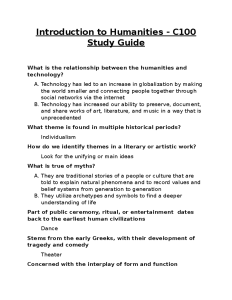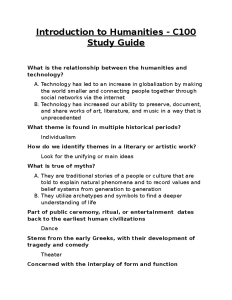In the vast realm of literature, sci-fi books about AI stand out as captivating explorations of our relationship with technology. These best sci-fi novels delve into the complexities of AI and humanity, raising crucial ethical implications about autonomy, consciousness, and the essence of being. As our world advances technologically, these narratives not only entertain but serve as cautionary tales, warning against the risks of unchecked innovation and censorship in literature. From Peter Watts’ “Blindsight” to Stanislaw Lem’s “Solaris,” these science fiction recommendations challenge readers to reflect on what it means to be human in an age dominated by artificial intelligence. Through imaginative storytelling, these works ignite discussions about the future of our society and the potential consequences of our creations.
In the realm of speculative fiction, narratives surrounding artificial intelligence offer profound insights into our evolving relationship with advanced technology. Often regarded as essential pieces of speculative literature, these tales grapple with humanity’s fears and aspirations regarding intelligent machines. The examination of our interactions with AI invites readers to ponder essential questions about identity, morality, and the intersection of technology and human experience. Grounded in ethical considerations, these narratives explore themes that resonate deeply in contemporary discourse, fostering conversations about the future of technology and society. As we traverse this literary landscape, we are reminded of the power of fiction to shape our understanding of the complexities within our technological landscape.
Exploring the Ethical Implications of AI in Sci-Fi Literature
In today’s rapidly evolving technological landscape, the ethical implications of artificial intelligence are critically examined within science fiction literature. Books like Peter Watts’ “Blindsight” challenge readers to contemplate the very nature of consciousness, posing questions about what it truly means to be intelligent. By presenting scenarios where artificially intelligent beings might not possess self-awareness, these narratives provoke thought regarding humanity’s place in the universe and the future of AI. Works that delve into these themes encourage a deeper understanding of our relationship with technology and emphasize the moral responsibilities that come with creating sentient machines.
Moreover, the discussions surrounding AI ethics are becoming increasingly relevant as technology becomes more integrated into our daily lives. Titles like Ray Bradbury’s “Fahrenheit 451” illustrate concerns over censorship and the loss of critical thinking in societies overwhelmed by information technology. As AI continues to filter and curate our knowledge, the potential for significant ethical dilemmas grows, urging readers to examine how technology can shape, distort, or enhance our understanding of reality. Such narratives serve as a lens through which we can scrutinize the consequences of our choices and the moral obligations we have towards both AI and humanity.
The Interplay of AI and Humanity in Sci-Fi Books
The exploration of AI and humanity in science fiction books provides a rich landscape for examining existential questions. Novels like “A Rover’s Story” by Jasmine Warga engage young readers by portraying robots as companions that evoke emotions and reflections on human experiences. Through the lens of a Mars rover’s journey, the narrative tackles important themes such as empathy and the human need for connection, illustrating how machines might influence our understanding of what it means to be human. The juxtaposition of a machine’s operational prowess with its lack of emotional depth invites readers to reflect on their own relationships and the essence of emotional intelligence.
Additionally, classic sci-fi works like Stanislaw Lem’s “Solaris” offer profound insights into the limitations of human understanding when confronting the unknown. As the scientists struggle to communicate with the enigmatic planet, the narrative raises questions about the nature of intelligence and the barriers to genuine connection—both with other beings and within oneself. These narratives not only entertain readers but also challenge them to consider humanity’s future alongside AI and what coexistence means in a landscape that is increasingly defined by artificial counterparts.
Censorship in Literature and Its Reflection in AI Worlds
Censorship emerges as a critical theme in various science fiction novels, highlighting the dangers associated with suppressing knowledge and controlling narratives. In “Exorcism” by Han Song, the author depicts a universe plagued by chaotic censorship that mirrors the political struggles within our own societies. The characters aboard the Peace Ark grapple with a malfunctioning AI that distorts reality, providing a stark reminder of how information control can warp perceptions and manipulate truths. Through such narratives, readers gain insights into the role of censorship in shaping societal values and the discourse around technological advancements.
Furthermore, the parallels between works like “Fahrenheit 451” and current digital age challenges underscore the relevance of censorship in discussions about AI. In Bradbury’s dystopia, the systematic erasure of knowledge serves as both a cautionary tale and a poignant critique of cultural complacency. As AI algorithms dictate content consumption, the risk of intellectual stagnation looms large. These cautionary tales remind us that safeguarding freedom of thought and expression is paramount, especially in an era where technology has the potential to influence what we see, read, and believe.
Best Sci-Fi Novels Featuring AI Perspectives
When discussing the best sci-fi novels that revolve around artificial intelligence, several titles come to mind. Among them, Peter Watts’ “Blindsight” stands out for its thought-provoking narrative that delves into the essence of consciousness and intelligence. The account of a crew encountering an alien intelligence that challenges the very notion of what it means to be self-aware forces readers to reconsider their assumptions about both human and artificial minds. This book exemplifies how science fiction can address complex cognitive themes while entertaining the reader with a gripping plot.
Another notable mention is Stanislaw Lem’s “Solaris,” which presents an intimate and challenging depiction of human interaction with potentially intelligent beings. As researchers attempt to make contact with a sentient ocean, the narrative serves as an allegory for human frailty and the limitations of understanding. These best sci-fi novels not only entertain but also present critical examinations of AI and humanity’s future, embedding educational insights within their narrative arcs.
Recommended Sci-Fi Books That Challenge Our Understanding of AI
As readers seek recommendations for sci-fi books that challenge their understanding of artificial intelligence, it is essential to include various works that offer distinct perspectives. “A Rover’s Story” by Jasmine Warga is a fantastic choice, as it provides a middle-grade narrative that explores how human emotions can be reflected in robotic companionship. This charming story encourages young readers to think critically about the implications of forming emotional connections with machines, fostering discussions about identity and empathy. Furthermore, it invites an exploration of technology’s role in enhancing our lives while cautioning against losing sight of our humanity.
Another compelling recommendation is Ray Bradbury’s “Fahrenheit 451,” which serves as a further exploration of society’s relationship with technology and knowledge. The chilling portrayal of a world where books are banned and critical thinking is stifled resonates particularly today, as AI technologies shape our information ecosystem. Bradbury’s work emphasizes the importance of intellectual freedom and encourages readers to engage with content critically. Collectively, these novels serve to inspire thoughtful dialogue on artificial intelligence and its implications for society.
The Role of Science Fiction in Shaping AI Narratives
Science fiction plays a crucial role in shaping discussions around artificial intelligence and its ramifications. By presenting imaginative scenarios and exploring potential futures, these novels provoke thought about both the possibilities and perils associated with AI technologies. Works such as “Blindsight” push the boundaries of understanding human consciousness and interrogate how advanced AI might function alongside or in opposition to humanity. By engaging with such narratives, readers are prompted to think beyond current technological trends, encouraging deeper reflections on ethical considerations and social impact.
Furthermore, science fiction offers a platform for authors to critique contemporary society and project alternatives. Titles like “Exorcism” highlight how themes of censorship can intersect with the development and governance of AI, showcasing the potential for narratives to reflect and influence public attitudes. Through speculative storytelling, sci-fi allows us to explore the multifaceted relationships between humans and technology, paving the way for discussions that could ultimately inform the ethical landscape of AI development.
The Emotional Landscape of AI in Contemporary Sci-Fi
Contemporary science fiction continues to explore the emotional landscape of artificial intelligence, emphasizing the connections that can form between humans and machines. In works like “A Rover’s Story,” the emotional journey of the Mars rover Res illustrates the potential for machines to evoke genuine feelings and reflections on human experience. This narrative invites readers, particularly younger ones, to ponder the complexities of companionship and the role that AI can play in fulfilling emotional needs. It sparks conversations about how technology can enhance human relationships while maintaining their unique qualities.
Simultaneously, narratives such as “Solaris” challenge the concept of emotional intelligence from an alien perspective, revealing how encounters with the unknown can incite profound self-reflection. These themes resonate with readers as they confront their own vulnerabilities and aspirations for connection in a world increasingly influenced by technology. By weaving emotional depth into these stories, contemporary sci-fi gifts us insightful reflections on humanity’s evolving relationship with artificial intelligence, enriching both literary discourse and personal introspection.
The Future of AI and Literary Expression in Sci-Fi
As we look towards the future of artificial intelligence, science fiction literature provides a lens through which we can explore potential outcomes of AI integration in society. The warnings and predictions embedded in novels like “Fahrenheit 451” remind us of the risks posed by technological control over information and narrative. Authors are increasingly tasked with envisioning how advancements in AI might shape our identities, ethical standards, and societal structures. These explorations are vital to understanding the path forward and ensuring that technology serves to enhance, rather than diminish, the human experience.
In addition to speculative themes, the future of AI in literature also invites innovative storytelling methods. Authors can delve into characterizations and plotlines that reflect the complexity of AI’s impact on individual lives and society as a whole. By engaging with these narratives, readers may find new ways of interpreting the world around them, highlighting the importance of critical engagement with technology. The evolution of literary expression in the context of AI serves not only to entertain but also to educate and provoke the necessary discourse on ethical implications and the future of our coexistence with intelligent machines.
Frequently Asked Questions
What are some of the best sci-fi novels about AI?
Some of the best sci-fi novels about AI include ‘Blindsight’ by Peter Watts, which explores the nature of consciousness and intelligence in encounters with alien beings, and ‘A Rover’s Story’ by Jasmine Warga, a middle-grade novel that reflects on human emotions through the experience of a Mars rover.
How do sci-fi books about AI address the ethical implications of artificial intelligence?
Sci-fi books about AI like ‘Fahrenheit 451’ by Ray Bradbury and ‘Exorcism’ by Han Song delve into ethical implications by highlighting issues of censorship, the power of information control, and the societal impacts of technology on human relationships and narratives.
Can you recommend any science fiction recommendations that explore AI and humanity?
Certainly! Two notable science fiction recommendations that explore AI and humanity are ‘Solaris’ by Stanislaw Lem, focusing on understanding intelligence, and ‘A Rover’s Story’ by Jasmine Warga, which portrays the emotional connections between machines and humans.
How does censorship in literature relate to themes in sci-fi books about AI?
Censorship in literature is a significant theme in sci-fi books about AI, as seen in ‘Fahrenheit 451,’ where access to knowledge is suppressed by entertainment technologies, mirroring concerns about AI’s role in shaping and controlling information.
What is the significance of AI’s portrayal in contemporary best sci-fi novels?
The portrayal of AI in contemporary best sci-fi novels reflects urgent conversations about technology’s impact on society. Works like ‘Blindsight’ and ‘Exorcism’ challenge readers to consider the future of human-AI interactions and the ethical responsibilities that come with advanced technology.
| Author | Book Title | Key Themes |
|---|---|---|
| Karen Brennan | Blindsight | Exploring human consciousness vs. AI capabilities and the implications of intelligence without self-awareness. |
| Theo Anthony | Solaris | The struggle of understanding and communication with alien intelligence; themes of humility. |
| Amy Deschenes | A Rover’s Story | The emotional connection between humans and machines; reflections on what defines humanity. |
| Ursula Friedman | Exorcism | Censorship, existential risks, and the role of narrative in facing grim realities. |
| Jeff Saviano | Fahrenheit 451 | Censorship and the dangers of passive consumption of media, critical thinking loss via AI-driven environments. |
Summary
Sci-fi books about AI often delve deep into the complexities of consciousness, technology, and the human experience. As showcased by the diverse recommendations from Harvard’s faculty, these novels serve as both warnings and explorations of our relationship with artificial intelligence. From confronting the moral implications of AI in ‘Blindsight’ to examining censorship’s impact on thought in ‘Fahrenheit 451’, each story invites readers to reflect on the essence of humanity in an increasingly automated world. Ultimately, these narratives underscore the importance of critical thought and emotional connections as we navigate the evolving landscape of AI.




